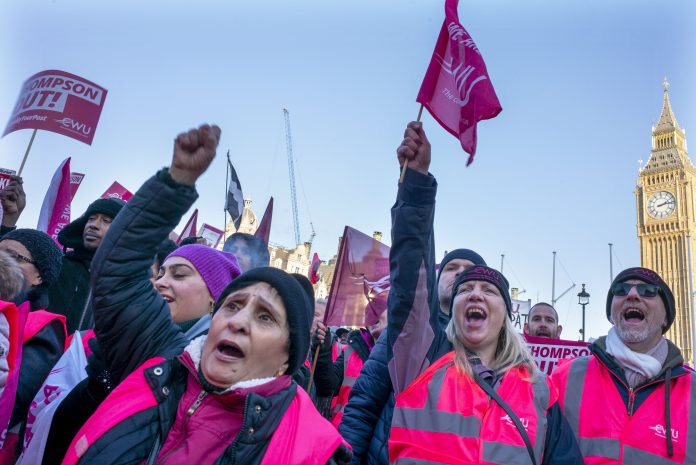Fight for a world free from poverty and oppression
Katrine Williams, PCS member
Not only has workers’ pay been kept down for decades with year-on-year real-terms pay cuts, but women’s pay lags even further behind. Trades Union Congress research shows women earning 15.8% less than men, on a full-time annual basis – equivalent to women spending the first few months of the year working for free. Soaring costs are driving our already low pay down even further. It is no wonder that women workers are so angry.
The oppression of women under capitalism means that the work in sectors where women predominate is often undervalued and underpaid. The pay gap is even wider for women with children. While social attitudes have changed, caring responsibilities still overwhelmingly fall on women who are more likely to be the household’s lowest earner.
Over 40% of women work part-time, unable to access affordable childcare. And while those in secure jobs have the right to request flexible working, there is no obligation for an employer to grant changes. Genuine flexible working, with no detriment or discrimination, has to be fought for by trade unions to help workers juggle caring responsibilities with work.
Not only are women the majority of public sector workers, but we also rely on the services being delivered in our communities. Austerity has cut services to the bone, pushing the burden more and more onto individuals to deliver the support on top of long hours in work. As workers on the frontline, we can see what is needed to deliver the vital services our communities and families need. And it is worth fighting for.
We have seen the willingness to fight in struggles like the equal pay dispute in Glasgow City Council, where strike action has won hundreds of millions of pounds for low-paid women. Workers recognise that strike action is necessary to force employers to deliver above-inflation pay rises.
Strike wave
Over half of trade union members are women and, especially in the public sector, women have been to the fore in the rising wave of strikes. Many who have never been on strike before are turning out in huge numbers to picket lines and rallies – linking the demands for increased resources and staff with the need to tackle low pay.
Workers’ support for the idea of striking together, and the desire to pile pressure onto the bosses and the government, has helped drive our unions to begin coordinating action. We must keep up the pressure to increase the numbers on strike on Budget Day, 15 March, as a step towards a 24-hour general strike.
The determination is there to take on the bosses and the government and win not just our immediate demands, but also to fight for the kind of society we need – a socialist society run to meet the needs of the working-class majority, not to maximise the profits of a few.







